News
Stay ahead with a curated collection of special news items tailored exclusively for stakeholders.
The latest updates on conferences, meeting outcomes, events, and groundbreaking proposals from esteemed partners within the AI4GH initiative are featured here.
The platform offers a comprehensive collection of global health research news, organized by date and year, to provide timely and relevant developments. For insights, announcements, or innovative solutions, the news page serves as a gateway to the forefront of advancements in AI for global health.
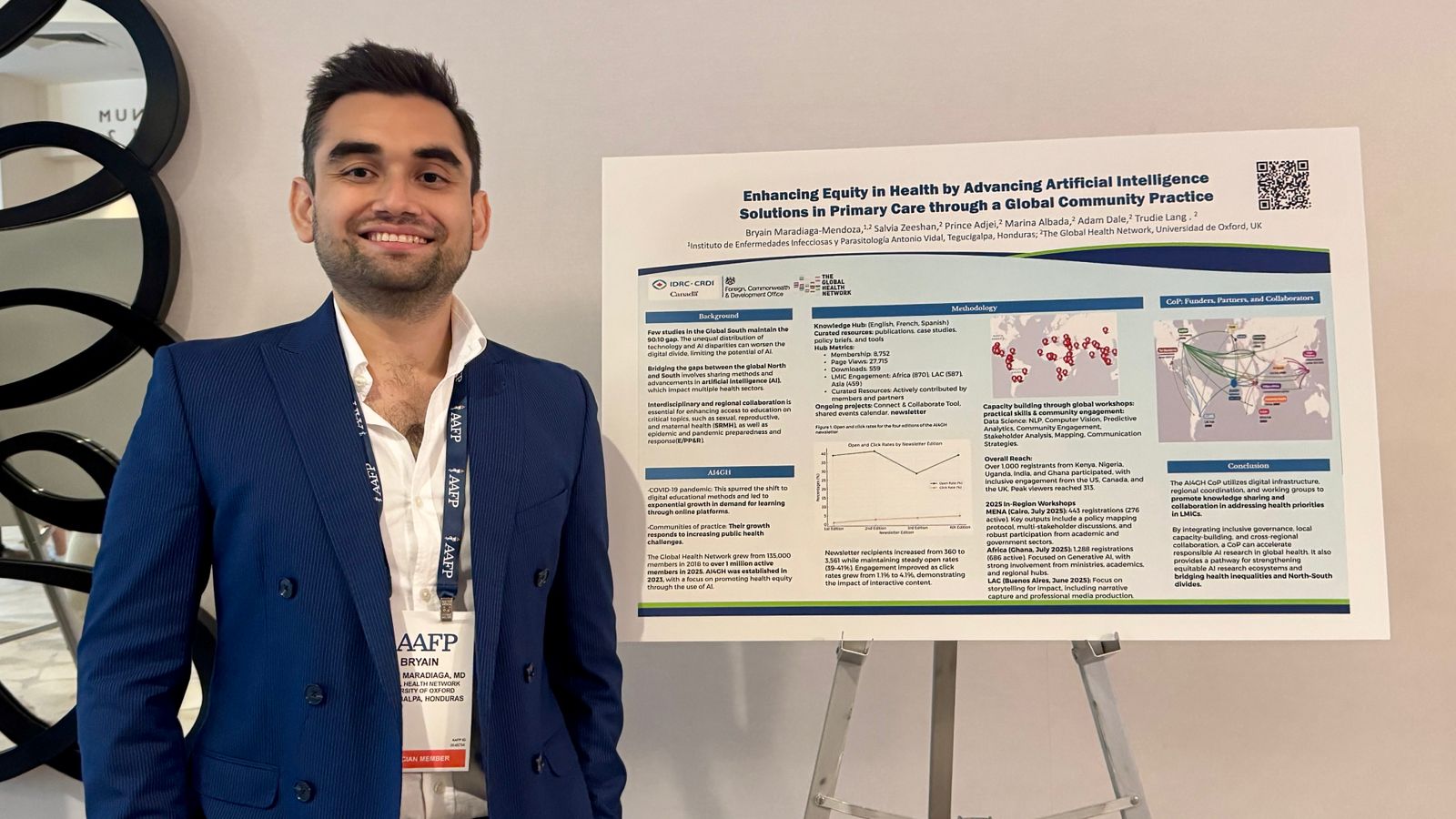
AI4GH Recognized at the 2025 Global Health Summit
AI4GH was highlighted on the international stage at the 2025 Global Health Summit, an event hosted by the American Academy of Family Physicians (AAFP) that brings together global health advocates, clinicians, educators, and researchers committed to advancing equity-centered care worldwide.
Bryain Maradiaga, AI4GH Regional Coordinator for Latin America and the Caribbean, was awarded the Global Health Summit Scholarship to present an abstract highlighting the initiative’s work in responsible artificial intelligence for strengthening health systems. His presentation introduced AI4GH’s collaborative model, community-of-practice approach, and regional capacity-building efforts to support researchers, practitioners, and policymakers across the Global South.
Participation in this event underscores the growing relevance of responsible AI in global health and highlights AI4GH’s contribution to innovation, equity, and knowledge sharing across regions.
AI4GH celebrates this achievement as a reflection of the initiative’s ongoing commitment to advancing ethical, inclusive, and context-appropriate applications of artificial intelligence to improve health outcomes worldwide.
The Summit offered a platform to explore key themes such as:
- Ethical and culturally sensitive engagement in global health partnerships
- Strengthening competencies for working in transnational and resource-constrained settings
- Addressing communicable and noncommunicable diseases in underserved regions
- Leadership development for clinicians and educators involved in global health
- Opportunities to apply global health principles within local contexts
Access more highlights from the conference here.
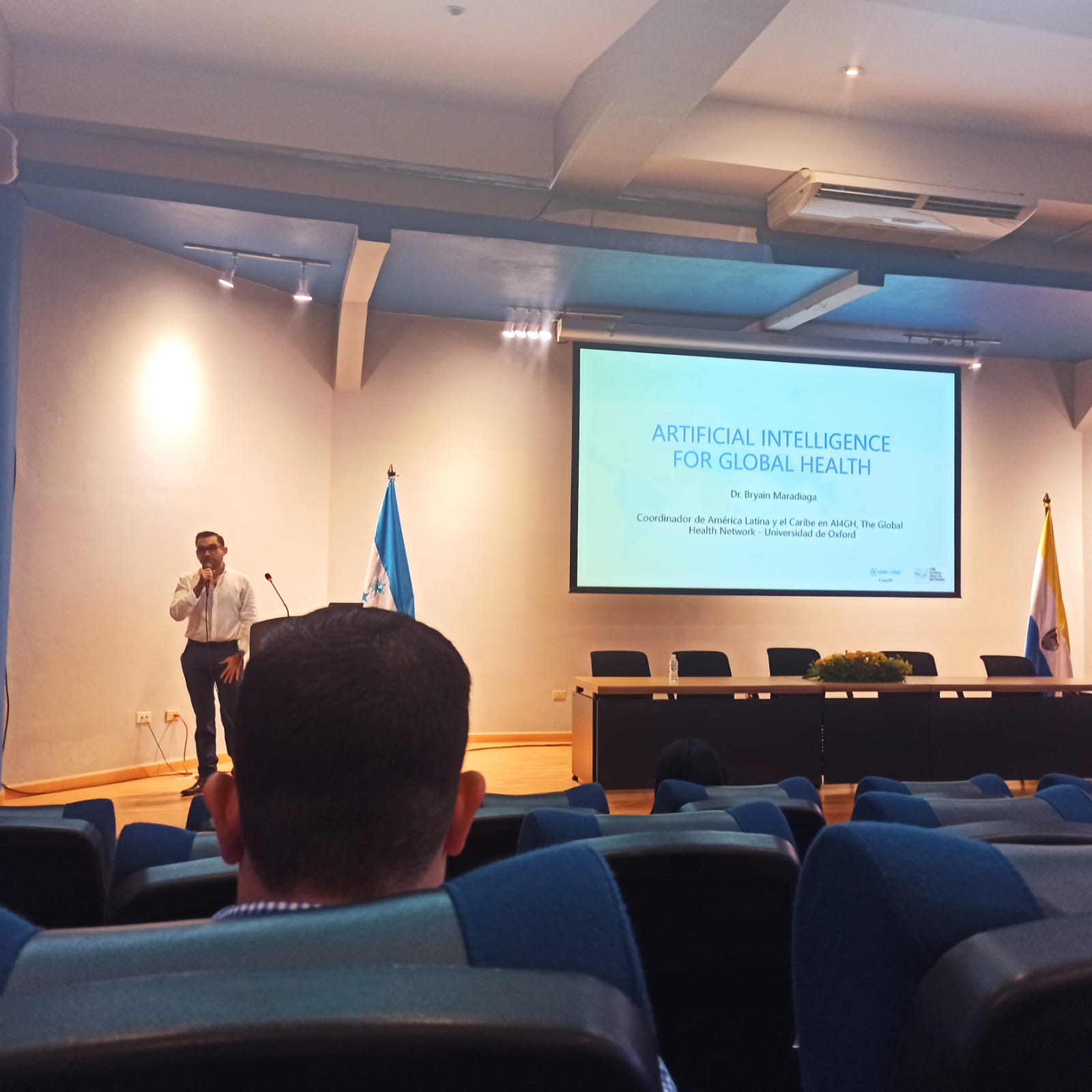
AI4GH Participates in the 2025 Postgraduate Congress with a Forum on Artificial Intelligence in Medical Teaching and Practice
As part of the 2025 Postgraduate Congress, AI4GH participated in a forum titled "Artificial Intelligence in Medical Teaching and Practice," which explored the applications, challenges, and opportunities of AI in academic training and clinical care. The event was moderated by Dr. Bryain Maradiaga, AI4GH LAC's regional coordinator, who presented a general overview of the AI4GH initiative and its role in promoting research and the responsible use of artificial intelligence in healthcare globally.
The panel consisted of leading specialists:
• Dr. Andrea Argenal, Gynecology and Obstetrics (Honduras)
• Dr. Nereida Aceituno, Internal Medicine and Endocrinology (Honduras)
• Dr. Manuel Colomé, PhD, Public Health and MSc in Research Ethics (Dominican Republic)
The discussion focused on the integration of AI in medical education, as well as the ethical and practical challenges associated with its use in clinical practice. The panelists shared their experiences and perspectives, highlighting the need to strengthen capacities in research, ethics, and regulation to ensure the responsible implementation of these technologies.
AI4GH's participation in this conference reinforces the network's commitment to academic training, knowledge exchange, and promoting the responsible use of artificial intelligence in health in Latin America and the Caribbean.
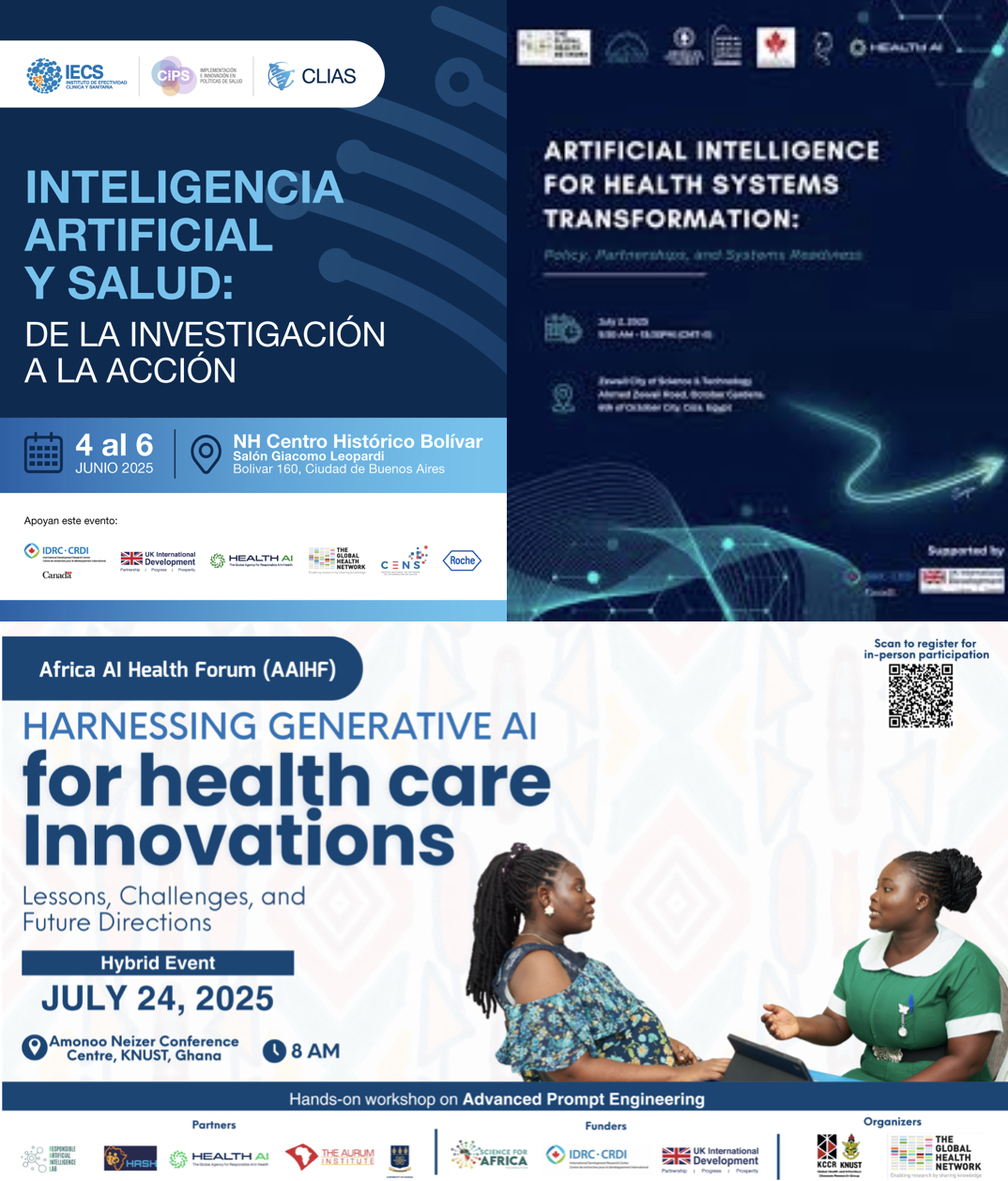
AI for Global Health Research Community of Practice: Global In-Person Engagement
The AI4GH Community of Practice is actively engaging across regions through in-person events, creating spaces for collaboration and shared learning on responsible AI in health.In Africa, the Global Health Network hosted the “Africa AI Health Forum “on 24 July in Ghana. The event highlighted the use of generative AI for public health innovation, with a focus on disease surveillance, equitable access, and health system strengthening.
In the Middle East and North Africa region, the “Artificial Intelligence for Health Systems Transformation: Policy, Partnerships, and Systems Readiness” workshop took place in Egypt, co-hosted by TGHN, WHO EMRO, and partners. The event brought together stakeholders from MENA and Asia to explore ethical, policy, and technical barriers to AI adoption in health, and to promote regional collaboration and system readiness. Learn more
In Latin America, “AI and Health: From Research to Action” workshop held in Argentina gathered researchers, experts, and project teams from across the region to address the practical challenges of scaling AI in healthcare. The event, hosted by CLIAS (IECS) with support from TGHN and partners, focused on responsible AI implementation and collaboration for equitable health impact. Read more
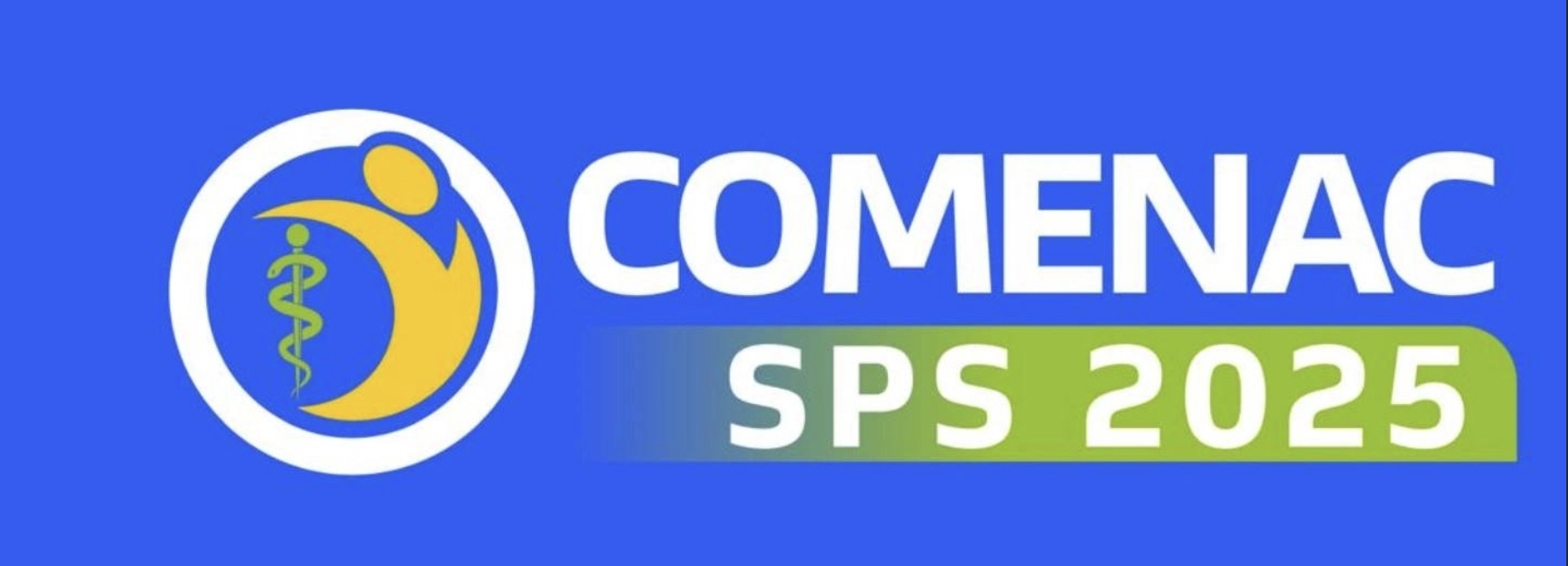
67th National Medical Congress 2025: Practice, Knowledge, Innovation
This edition's theme focused on "Practice, Knowledge, Innovation: Joining Forces in Medicine." Experts, researchers, and professionals from different health disciplines shared knowledge, experiences, and new practices that strengthen our work and the well-being of patients.
Based on consolidated knowledge and clinical experience, innovative approaches have been developed to address the challenges facing global health. From early disease detection to the prevention of new infectious agents, including health promotion strategies and the implementation of cutting-edge treatments, we will explore the future of healthcare together.
Artificial Intelligence for Global Health Research and the Antonio Vidal Institute participated in the 67th COMENAC 2025 National Medical Congress (COMENAC 2025), held from July 9 to 12, 2025, in San Pedro Sula, Honduras. COMENCA 2025 is organized by the Honduran Medical Association and is the most important medical event in the country. It brings together health professionals, researchers, academics, and students to share experiences, generate new alliances, and strengthen scientific knowledge. With a hybrid format (in-person and virtual), the congress offers a strategic space for academic exchange, continuing education, and health innovation.
The scientific program included open presentations, including the experience of Dr. Bryain Maradiaga, Regional Coordinator for Latin America and the Caribbean of AI4GH for TGHN. The open presentation, entitled "Strengthening Health Systems and Research through Shared Strategies in a Global Community of Practice," describes the challenges and benefits of using digital tools and hybrid formats, facilitating an iterative process of learning and adaptive implementation that seeks to improve regional health systems and research ecosystems through the responsible use of artificial intelligence in health, with a special focus on sexual and reproductive health, and preparedness, prevention, and response to epidemics and pandemics.
The Compendium of Abstracts is available as a COMENAC 2025 Supplement to the Revista Médica Hondureña.
This paper explores the connection between AI solutions and global health, identifying evidence gaps and opportunities to utilize AI responsibly to combat health inequity and strengthen health systems. This proposed research landscape addresses global health trends and issues while establishing prerequisites like regulation, data quality, gender equality, ethics, and equitable Global South-led partnerships. It proposes three entry points for research: health services, community surveillance, and individual health. Evaluating AI development and deployment is critical, and ensuring scaling is a thoughtful choice. Responsible scaling can address vulnerabilities and improve lives, aiming for strong, resilient health systems. AI can either reduce or worsen health inequities. By strategically advancing research, the Global South can influence the creation of equitable, rights-based AI solutions
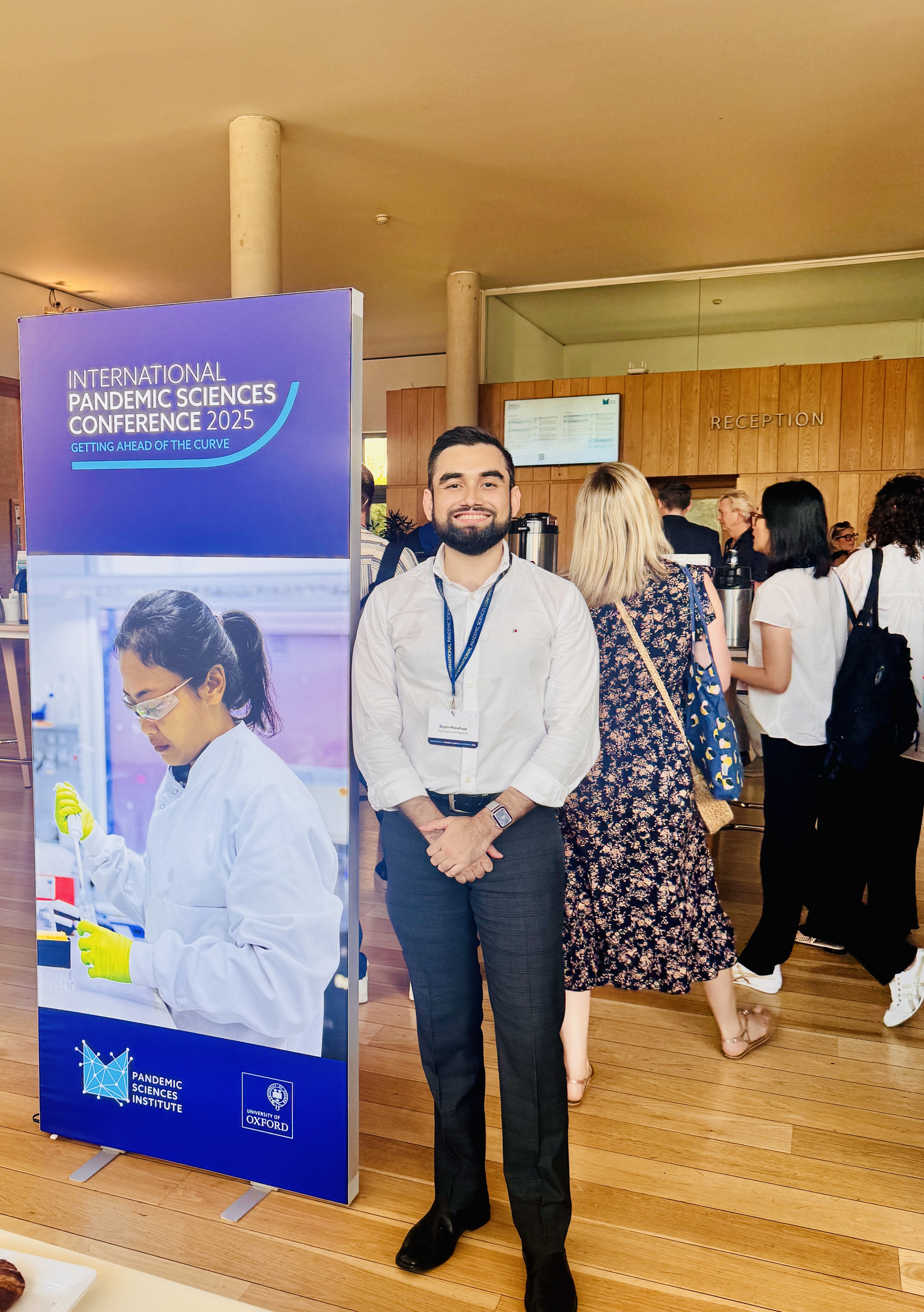
International Pandemic Science Conference 2025
Oxford and online from June 30 to July 1, 2025.
Hosted by the Pandemic Sciences Institute, this year’s conference theme, Getting Ahead of the Curve, explored how we can work together to better predict, identify, and control epidemic and pandemic threats globally.
AI4GH and The Global Health Network participated in the International Pandemic Science Conference, by representation of Dr. Bryain Maradiaga, Coordinator for Latin America and the Caribbean region at AI4GH from the Global Health Network, presented an overview of the AI Hub for Global Health, which aims to advance the design and use of responsible AI that improves equitable health outcomes by connecting ideas, people, and capacity-building opportunities. The initiative is funded by the International Development Research Centre (IDRC) and the Foreign, Commonwealth & Development Office (FCDO)
The conference consisted of 5 Plenary sessions and 6 Parallel sessions.
Plenary 1: Welcome and Keynote
Plenary 2:Prediciton and Surveillance
Plenary 3: Next generation disease control
Plenary 4: Bridging the gap
Plenary 5:Awars and Ceremony and closing remarks
Parallel A: Ethics, social sciences, and humanities
Parallel B: Epidemiology, data and analytics
Parallel C: Vaccines and immunology
Parallel D: Diagnostics, treatment, and care
Parallel E: Pathogen biology and new threats
Parallel F: Policy, politics and practice
Parallel G: Public and patient involvement and engagement
Event photos
Dr. Bryain Maradiaga gave an oral presentation in the Parallel A session: Ethics, social sciences and humanities. This session explored how research perspectives from the disciplines of ethics, social sciences, and humanities play a crucial role in framing discussions around and guiding approaches to predicting, detecting, and controlling infectious disease research and response globally.
Chairs:
- Professor Michael Parker, Ethox Centre Director and Professor of Bioethics, Pandemic Sciences Institute, University of Oxford
- Professor Mehrunisha Suleman, Associate Professor and Director of Medical Ethics and Law Education, Pandemic Sciences Institute, University of Oxford
Presentations from abstracts:
- Amy Paterson (University of Oxford)
- Devika Kapoor and Sumair. Nizamuddin (RAND Europe/Nuffield Council on Bioethics)
- Kerrie Wiley (University of Sydney), Charlotte
- Waltz (Erasmus University, Rotterdam)
- Jamie Webb (University of Oxford)
- Bryain Maradiaga (The Global Health Network, Honduras)
- Kate McNeil (University of Oxford)
- Goodness Odey (Global Health Focus, Nigeria)
- Omotolani Ebenezer Ekpo (Federal University Wukari, Nigeria)
See abstracts: here
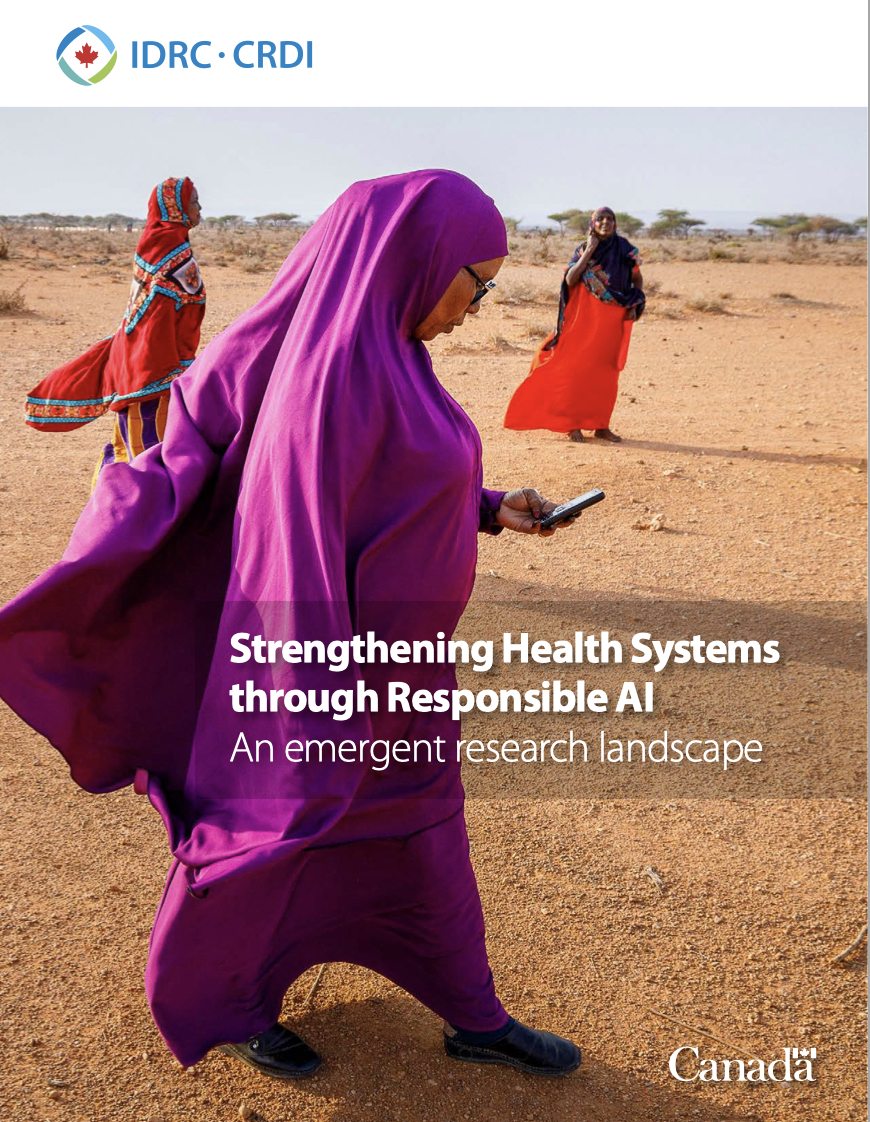
Strengthening Health Systems through Responsibile AI
This paper explores the connection between AI solutions and global health, identifying evidence gaps and opportunities to utilize AI responsibly to combat health inequity and strengthen health systems. AI advances the management of diseases through diagnostics, preventive care, healthcare planning, clinical decision-making, public health surveillance, drug discovery, and health threat responses. However, evidence on AI’s application in global health is lagging. The responsible use of AI must focus on knowledge gaps, ethical implications, and the needs of underserved populations, particularly from a Global South perspective. This proposed research landscape addresses global health trends and issues while establishing prerequisites like regulation, data quality, gender equality, ethics, and equitable Global South-led partnerships. It proposes three entry points for research: health services, community surveillance, and individual health. Evaluating AI development and deployment is critical, and ensuring scaling is a thoughtful choice. Responsible scaling can address vulnerabilities and improve lives, aiming for strong, resilient health systems.
AI can either reduce or worsen health inequities. By strategically advancing research, the Global South can influence the creation of equitable, rights-based AI solutions. Donors and research organizations must prevent AI from perpetuating inequalities. This landscape ignites discussions that lead to action, guiding global research toward achieving the Sustainable Development Goals by 2030.
Discover the initiative and its role in innovating healthcare on a global scale. By reading the discussion paper: Strengthening Health Systems through Responsible AI An emergent research landscape.
